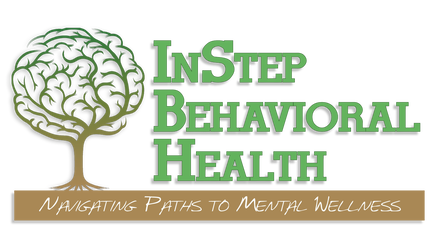Use of Technology for Mental Health
10/28/2020
Use of Technology for Mental Health
With the integration of cell phones, specifically smartphones and tablets, mental health apps increase our
ability to use strategies and monitor mental wellness conveniently.
Examples of Apps:
Headspace- used for meditation and mindfulness
Meditation has been shown to help people stress less, focus more and even sleep better Teaches life-
changing skills of meditation and mindfulness in just a few minutes a day
SoberTool- helps people stay clean, sober and happy
Developed by a 30 year sober Harvard educated Licensed Chemical Dependency Counselor and a team
from The Ohio State University
Vetchange- personalized action plans to manage life situations and triggers for alcohol abuse
Pros and Cons of technology:
Pros include lower costs than inpatient or ER care, anonymity with apps, and are an easy introduction to a
new issue or topic for certain people.
Cons include that they may not work for all people. Not regulated and unclear how effective they are?
Main Categories you will find when searching for Mental Health APPs:
Self management type (eating, drinking )
Improving thinking skills
Illness management
Supported care apps
Researchers have found that interventions are best used when people enjoy them and are engaged and
continue using them consistently.
Let's not forget that incorporating face to face contact or remote counseling to prove a balance between
technology and the "human touch" improves outcomes for those who are stuck or not progressing.
Source: NIH Technology and the Future of Mental Health Treatment
Martin Mika, APN: Martin is a mental health nurse practitioner who has provides psychiatric
assessment and medication management and psychotherapy services. He has been seeing patients over
Zoom during the Covid 19 pandemic.
Use of Technology for Mental Health
With the integration of cell phones, specifically smartphones and tablets, mental health apps increase our
ability to use strategies and monitor mental wellness conveniently.
Examples of Apps:
Headspace- used for meditation and mindfulness
Meditation has been shown to help people stress less, focus more and even sleep better Teaches life-
changing skills of meditation and mindfulness in just a few minutes a day
SoberTool- helps people stay clean, sober and happy
Developed by a 30 year sober Harvard educated Licensed Chemical Dependency Counselor and a team
from The Ohio State University
Vetchange- personalized action plans to manage life situations and triggers for alcohol abuse
Pros and Cons of technology:
Pros include lower costs than inpatient or ER care, anonymity with apps, and are an easy introduction to a
new issue or topic for certain people.
Cons include that they may not work for all people. Not regulated and unclear how effective they are?
Main Categories you will find when searching for Mental Health APPs:
Self management type (eating, drinking )
Improving thinking skills
Illness management
Supported care apps
Researchers have found that interventions are best used when people enjoy them and are engaged and
continue using them consistently.
Let's not forget that incorporating face to face contact or remote counseling to prove a balance between
technology and the "human touch" improves outcomes for those who are stuck or not progressing.
Source: NIH Technology and the Future of Mental Health Treatment
Martin Mika, APN: Martin is a mental health nurse practitioner who has provides psychiatric
assessment and medication management and psychotherapy services. He has been seeing patients over
Zoom during the Covid 19 pandemic.
